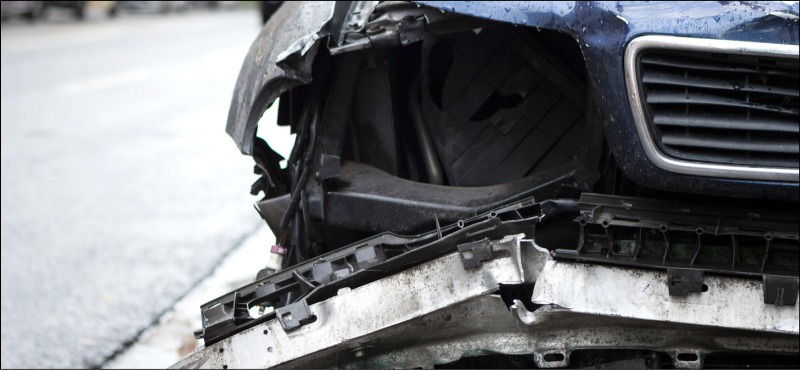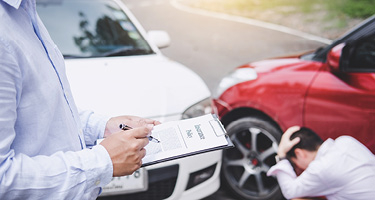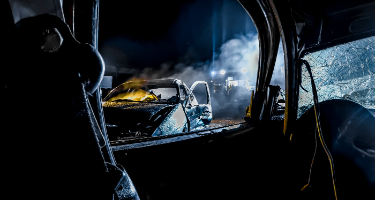Car accidents are stressful. There’s no doubt about it. However, it’s important to keep in mind that the things you do after an accident matter. One of the worst things you can do is admit fault - even if you believe that you’re responsible. Here’s why: you might not be entirely at fault.
In fact, you might not even be primarily at fault. You just can’t know why an accident happened and who’s to blame unless there’s a thorough investigation. However, it’s unlikely that an investigation will occur if you apologize and accept responsibility immediately following a collision.
Accidents Are Complicated
Few things about car accidents are straightforward. It’s not often that an accident happens for one individual, isolated reason. Instead, many factors tend to come together to create a dangerous situation. Sometimes these factors are clear and obvious—drivers are speeding or intoxicated. Others aren’t as easy to identify. These often include:
- Distracted driving practices
- Defective vehicles, safety equipment, or airbags
- Hazardous road conditions
- Medical issues, and
- Weather conditions.
It’s these quiet, unassuming factors that will remain unknown until someone digs deep and shines a light on them. If you just accept blame for an accident, however, you’ll never know if these other things might have also caused you to get into an accident. That information could be critical to not only preserving your right to recover compensation for your injuries, but maximizing your recovery, as well.
Negligent Accident Victims Can Potentially Recover Compensation in Georgia
One of the reasons why you want to make sure that your accident is investigated is because of something called contributory fault. Every state in the country has laws that talk about what happens when multiple parties contribute to an accident. Fault—and financially liability —for those accidents are allocated to responsible parties. Those laws also dictate if and when accident victims who share blame can recover compensation for themselves.
States have embraced three different ways of approaching these situations:
- Contributory Fault: you’ll be barred from recovering compensation if you share any blame for your accident
- Comparative Fault: you can recover compensation even if you’re primarily at fault, but your damages will be reduced to reflect your contribution to your accident, and
- Modified Comparative Fault: you can recover some compensation as long as you don’t share more than a certain amount of the responsibility for causing an accident.
Georgia is a modified comparative negligence state. Simply put, accident victims can seek damages from other negligent parties as long as they’re allocated less than half of the blame for a crash. Once you share 50 percent of the blame (or more), you’ll be barred from getting any money, at all.
So, admitting fault immediately after an accident is clearly not in your best interest. Insurance companies and other parties involved will take your admission of fault and run with it. They’ll use it as leverage and proof when they point fingers and shift the majority (if not all) of the blame onto you after the accident. That will almost certainly end your pursuit of compensation before it even starts.
How to Make Sure Your Georgia Car Accident Is Investigated
Thanks to Georgia’s comparative negligence rules, you don’t automatically lose out on the right to recover monetary damages for sharing blame for an accident. However, if you do share fault, it’s critical that you speak with a local car accident lawyer.
Your attorney will know what to do and how to protect you. They’ll know what steps must be taken to preserve your right and ability to recover much-needed compensation for things like medical bills, lost income, and chronic pain.
First, your lawyer will instruct you to direct any and all communication with other parties and insurance companies to their law office. Insurance companies use manipulative tricks and tactics - you don’t want to let those work in their favor. Letting your attorney handle all conversations and negotiations is a great way to accomplish that.
Second, your personal injury attorney will make sure that your accident is subject to a thorough independent investigation. The details in the police report generated after your accident can be a great source of information and starting point. Your attorney can dig deep and work hard to determine what caused your accident and pinpoint anyone who might share blame.
Third, your attorney can rely on accident and injury experts as they investigate and build your case. These experts can provide critical insight into your accident and help your lawyer understand the extent of your injuries. This information can be used as leverage when negotiating a settlement on your behalf.
None of this, however, will happen if you apologize and admit fault after your Georgia car accident. So, the best thing to do is keep quiet, make sure everyone is okay, and get on the phone to call your lawyer.
----------
About the Author: Stephen Hasner is a workers’ compensation and personal injury lawyer in Atlanta, GA. His firm, Hasner Law, PC, has helped thousands of people injured due to someone else’s negligence.
































